Some people have pet raccoons, but it does not necessarily mean that you can do the same. These masked scavengers are smart, quick, and can easily be trained. But no matter how careful you are, they will always possess an instinct of being wild animals and can be very dangerous, especially to small children.
Why should you not have a raccoon as a pet? Raccoons should not be kept as pets because they are wild animals, which means that they belong to the wild. Aside from possibly being infected with rabies and other diseases, raccoons can be aggressive toward humans and may bite their caretakers without a warning.
Raccoons are almost everywhere in the United States and sometimes can be nuisance pests. But still, some people can have them as pets. So, what are the consequences if you decide to have them in your home? This is only one of the questions that will be answered in this comprehensive guide.
Do Raccoons Make Good House Pets?
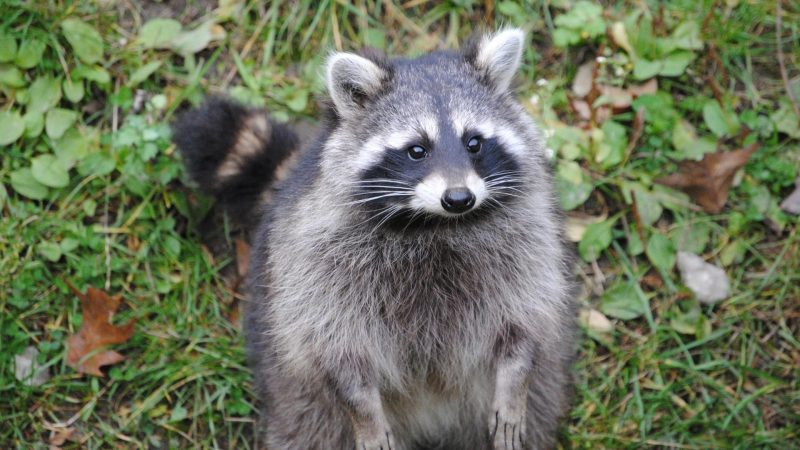
Raccoons don’t make good house pets. They are smart and have incredible memory but are very unpredictable. In general, raccoons are very curious animals and can cause severe damage inside your house. They also love to steal food, forage in garbage cans, and require lots of attention.
Why You Should Not Have a Raccoon as a Pet?
You can experience difficulties if you maintain a raccoon as a pet in your house.
1. Various Temperaments
Raccoons have a history of aggression. They have been known to bite humans, animals, and even members of the family. Raccoons can develop aggression as early as six months old if they are not domesticated.
2. Disease Carriers
Due to the possibility of rabies transmission and the lack of a rabies vaccine, if your raccoon attacks or scratches someone, they may be taken away and put to death. Salmonella, leptospirosis, distemper, and other illnesses, as well as parasites are some of the diseases that may transmit.
3. Difficulty Finding Vet Care
Raccoons frequently struggle to find veterinary care since the majority of veterinarians don’t know how to treat them. They are rarely, if ever, given routine veterinary treatment, even in locations where keeping them is permitted.
Raccoons are not treated with veterinary medicine, and they may respond to drugs intended for dogs and cats. In many instances, the issue comes down to a complete lack of knowledge regarding the medical anatomy of raccoons.
4. Mischievous Nature
Raccoons are cunning creatures that do several jobs with their long-fingered paws, including opening doors and unscrewing lids. Due of this, it may be challenging to keep children out of places or possessions they shouldn’t have access to.
Can You Domesticate a Raccoon?
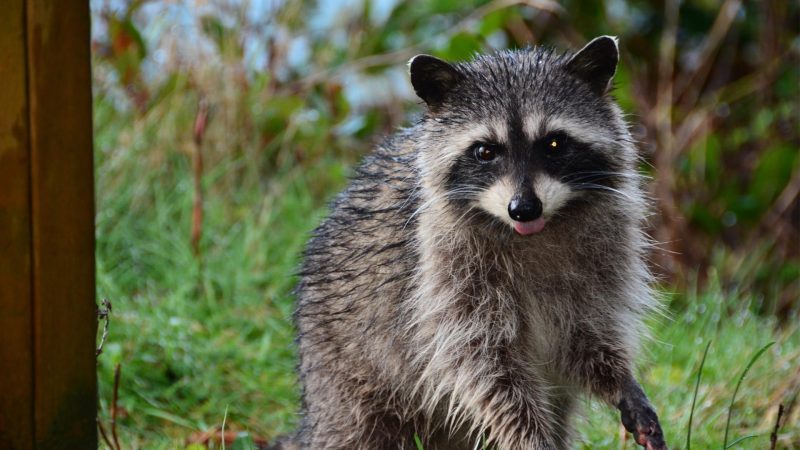
You can domesticate a raccoon, but it does not mean you should. During his presidency, President Calvin Coolidge and First Lady Grace Coolidge had a pet raccoon named Rebecca.
But when his term ended, Rebecca the raccoon was donated to a zoo, and she failed to adapt to her new environment and died.
Rebecca’s story serves as an assignment that domesticated raccoons can end up in trouble. Some raccoons can be tamed, especially when they are raised in captivity.
However, the time will come when they should be returned to their natural habitat. This is also why most animal experts don’t recommend having pet raccoons.
Are Raccoons Aggressive to Humans?
Generally speaking, raccoons look at humans as predators. Although humans and raccoons can live closely with each other in urban and suburban areas, they can be aggressive toward people.
If you have a raccoon in your attic or chimney and you cornered the animal, there’s a very huge chance that it will attack you.
Related: Do Raccoons Attack Humans and Our Pets (Cats, Dogs, and Others)? | Information and Facts
Can You Keep a Baby Raccoon as a Pet?
You can keep a baby raccoon (also called a kit) as your pet, but there are important factors to consider before doing it. First of all, make sure that having a pet raccoon is legal in your area.
If it is, you may have to secure a permit first. Second, you must have the capability to raise them safely and healthily.
Nonetheless, keeping a baby raccoon as a pet is not advisable. Kits can be aggressive once they grow up or reach their age of sexual maturity. But most importantly, baby raccoons belong to their mother.
Injured or orphaned raccoons should also be brought back to the wild once they are healthy and old enough.
What States Is Legal to Have a Pet Raccoon?
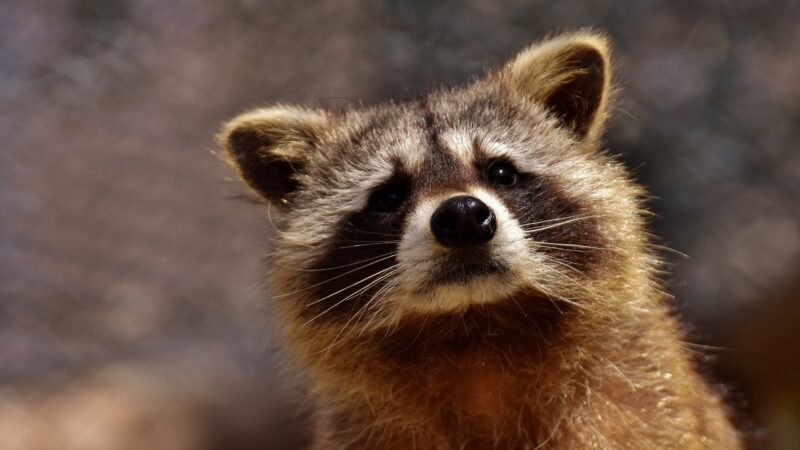
As of December 2021, there are only 15 US states that allow having a pet raccoon. They are Arkansas (only 6 animals per owner), Delaware, Florida, Indiana, Michigan, Nebraska, New Mexico, Ohio, Oklahoma, Rhode Island, South Carolina, South Dakota, Utah, Wisconsin, and Wyoming.
Note, however, that you should still secure a proper permit from the state’s natural resources department before you can own a raccoon.
Also, there are states where owning a pet raccoon is legal but you are not allowed to buy or sell them. For specific rules and regulations, contact your local wildlife service.
Why Is It Illegal To Have a Raccoon as a Pet?
Some areas consider having a pet raccoon as illegal to protect public health and safety. Raccoons are known to be primary carriers of rabies and other transmittable diseases such as Salmonella, canine distemper, and leptospirosis. These fuzzy mammals are also wild and may attack humans and pets.
Where Do Raccoons Live?
Raccoons prefer living in moist woodland areas or wooded areas near water. They also make nests in brush piles, ground burrows, hollow trees, or rock crevices. These masked bandits are also very adaptable in urban and suburban environments. This is why they can live in backyards, attics, and chimneys.
Can You Remove Raccoons From Their Natural Habitat?
You can remove raccoons from their natural habitat. However, you should not do it without a valid reason and approval from your local wildlife service agency.
Injured raccoons in the wild should only be removed by professionals, so don’t just take them home to be your pets. Otherwise, they might suffer and die.
Will Raccoons Come Back if You Relocate Them?
Raccoons will come back if you relocate them to an area nearby. Ideally, raccoons should be relocated at least 5 miles away to reduce the chance that they can come back; the farther the distance, the better.
Mother raccoons are very likely to come back if their babies were left behind or separated from them.
But more importantly, most states will require you to secure a permit before you can legally relocate raccoons. So, even if you don’t need a permit, relocating raccoons is only recommended if you are a wildlife removal service professional.
This is because they know how to do it properly and what’s best for the raccoons.
What Happens if You Touch a Baby Raccoon?
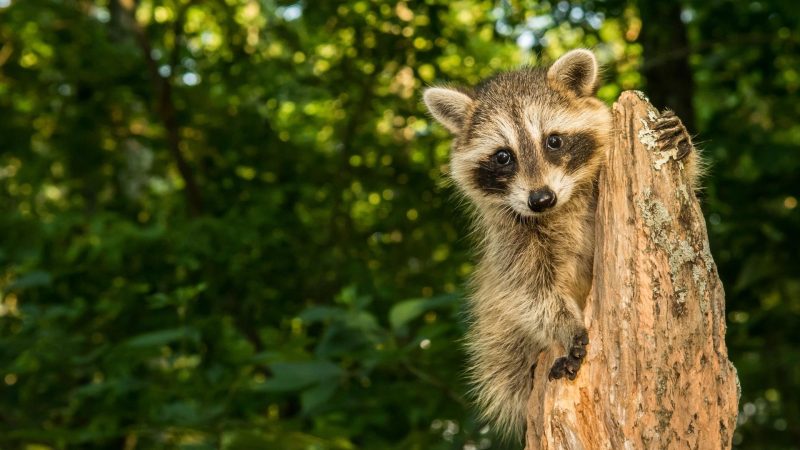
If the baby raccoon has teeth already, it might bite or scratch you if you touch it. On the other hand, if that young raccoon has rabies, you might also get infected.
This is why you should avoid touching baby raccoons unless in case of emergency. And if you do, wear safety gloves. But as much as possible, ask a professional to do the job.
On the other hand, it is not true that mother raccoons will abandon their babies that have been touched by humans. Contrary to popular myths, human scent will not be transferred to babies if you touch them.
In most cases, a mother raccoon will only abandon her baby if it is cold, sick, or has a birth defect.
Will a Baby Raccoon Bite?
A baby raccoon will bite if startled, scared, or mishandled. Baby raccoons that are 6-8 weeks old may already have baby teeth and will bite you. If the baby is infected with rabies, it can transmit the disease to humans.
This is also why you should not touch kits unless you are professional or wearing safety gloves.
What Do Abandoned Baby Raccoons Eat?
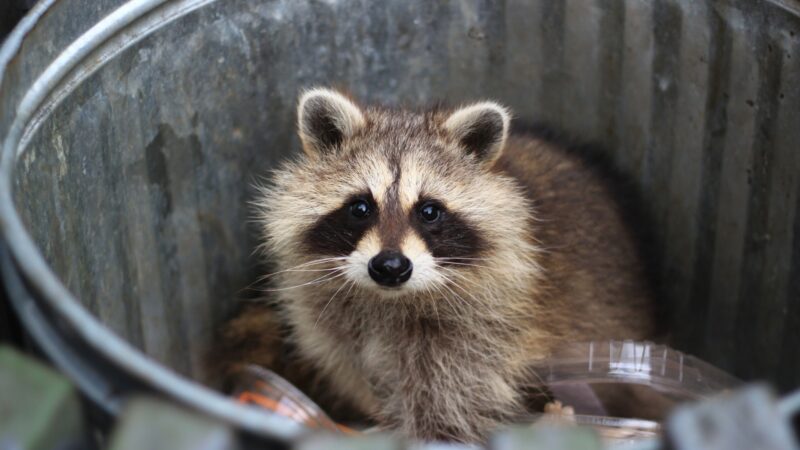
If you found an abandoned baby raccoon, the first thing you should do is to make sure that it is truly abandoned and that the mother is no longer available to take care of her baby.
Don’t feed it right away because any wrong food can cause digestive problems. Also, don’t offer water because it can lead to drowning.
The best thing is to call a veterinarian, who will assess before giving some recommendations. If the baby raccoon has been abandoned for more than 24 hours, it might already be suffering from dehydration.
The ideal feed is Pedialyte, which is a common rehydration solution for human babies.
If the veterinarian has confirmed that the baby raccoon is already hydrated, don’t give cow’s milk or any milk formula to humans. Instead, feed the animal with kitten milk replacement such as KMR Milk Replacer .
Alternatively, you can offer PetAg Esbilac Powder Milk Replacer . The powder is better than liquid, though.
Can You Potty Train a Raccoon?
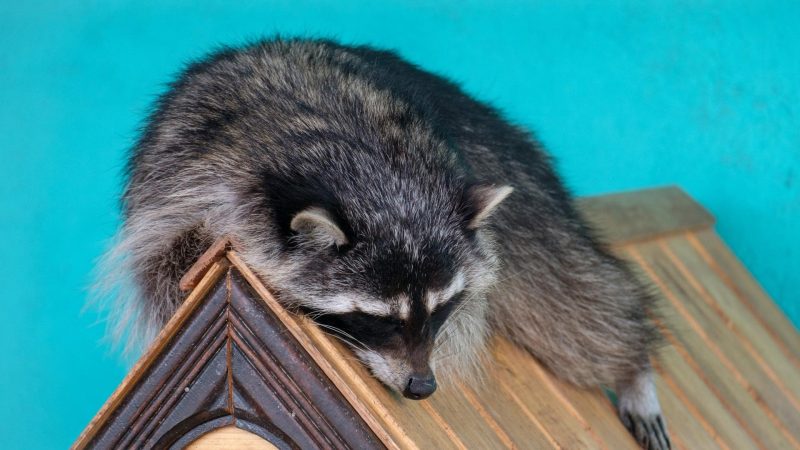
You can potty train a raccoon, but it takes a lot of effort and patience. This is because most of the time, these animals are picky and stubborn when it comes to following orders.
Nonetheless, raccoons are very intelligent animals, so you can also train them to obey some simple commands such as “sit” and “shake.”
Are Pet Raccoons High Maintenance?
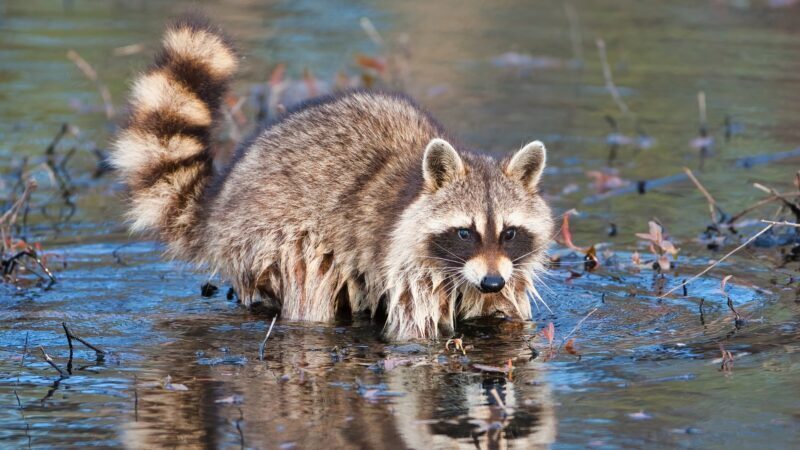
Pet raccoons are high maintenance. In fact, they are extremely high maintenance because they are so active, and you cannot put them inside a cage at all times.
Otherwise, they will scream a lot and will only stop if you free them. You will also need a very wide space, where they can run, climb, and enjoy.
Once you let raccoons roam around inside your house, they will break things, take your food, and climb everywhere possible.
And because they are nocturnal animals, they are most active at night, and you will hardly enjoy a good sleep. Raccoons are also messy eaters since they dip food in water before eating them.
Are Raccoons Smarter Than Dogs?
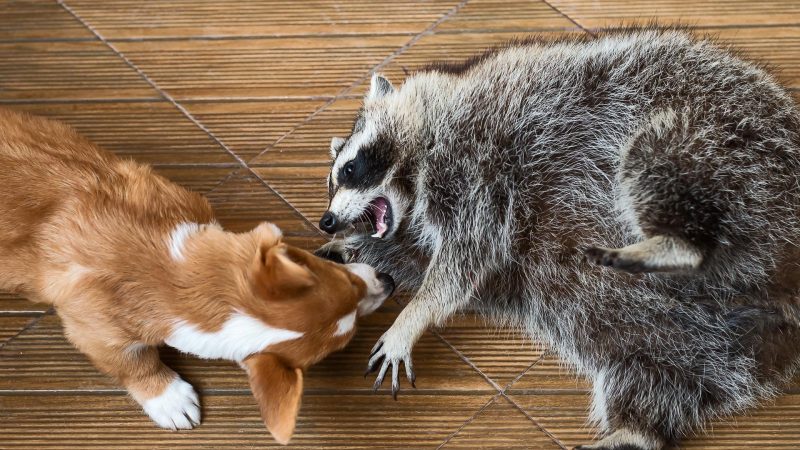
Raccoons are smarter than dogs, according to a 2017 study. This is after it was learned that a dog’s brain has the same size as a cat’s brain but has the same number of neutrons in its cerebral cortex as a raccoon’s brain – about 530 million! Meanwhile, a cat’s brain only has about 250 million neutrons.
The study also suggested that a more reliable indicator of intelligence is the number of neutrons inside the brain.
Although dogs are known to be very smart and easy to train, raccoons appear to be smarter when it comes to solving problems. Interestingly, raccoons were also proven to be smarter than cats.
List of Sources
Baldwin, R. A. (2014). Raccoons. University of California Agriculture & Natural Resources.
Tucker, N. (2021). When Rebecca the Raccoon Ruled the White House. Library of Congress.
Jardim-Messeder D., et al. (2017). Dogs Have the Most Neurons, Though Not the Largest Brain: Trade-Off between Body Mass and Number of Neurons in the Cerebral Cortex of Large Carnivoran Species. Frontiers in Neuroanatomy.
- How to Get Rid of Copperheads | Practical Guide - August 27, 2023
- How to Get Rid of Corn Snakes | What Makes Them Aggressive? - August 27, 2023
- How to Get Rid of Alligators | Safety Measures and Removal Methods - July 16, 2023
